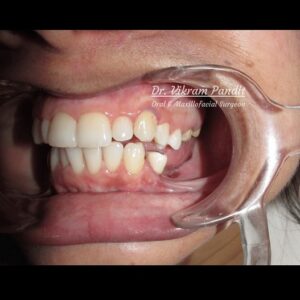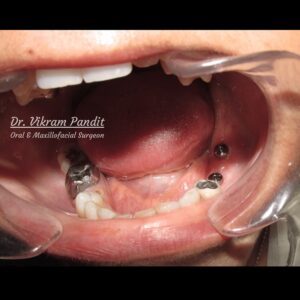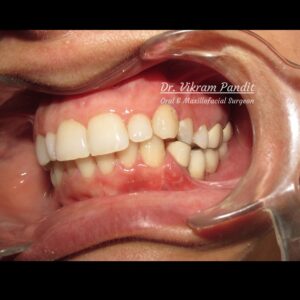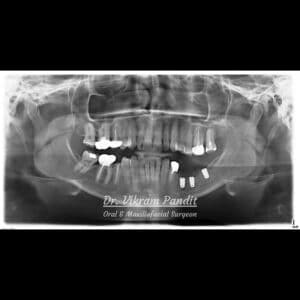- Home
- About Us
- Plastic & Cosmetic SurgeryPlastic ReconstructiveFace ContouringBreast SurgeryBody ReshapingRejuvenation
- Cosmetology & Dermatology
- Trichology
- Eye Surgery
- Oral & Maxillofacial Surgery
- Pediatric Preventive Dental Care
- International Patients
- Media and Awareness
- Testimonials
- Contact Us
- CALL US
- E-CONSULT
- Home
- About Us
- ServicesPlastic & Cosmetic SurgeryCosmetology, Dermatology & TrichologyEye SurgeryOral & Maxillofacial SurgeryPediatric DentistryPlastic ReconstructiveFace ContouringBreast SurgeryBody ReshapingRejuvenationCosmetology ProceduresDermatology TreatmentsOral & Maxillofacial servicesOral & Maxillofacial servicesOral & Maxillofacial servicesPediatric Dentistry ServicesPediatric Dentistry Services
- International Patients
- Media and Awareness
- Testimonials
- Contact Us
A dental implant is one of the best ways to replace broken or missing teeth
- Home
- Oral and Maxillofacial Surgery
- Dental Implants
Dental Implants
Replace broken or missing teeth with Dental Implants. Retain Good Oral Health!
- Home
- Oral and Maxillofacial Surgery
- Dental Implants
What Is A Broken Tooth Or A Loose Tooth?
There are several varieties of trauma that may lead to different types of broken or loose teeth.
- Broken Tooth
A broken tooth occurs when a substantial piece of the tooth is knocked out, often exposing its roots and pulp. This will look like a mixture of white, dark, and red areas. If you suffer a broken tooth, you will likely be in moderate to severe pain and will feel the need to see a dentist as soon as possible. Left untreated, broken teeth can result in severe pain, infection, swelling, and a potential medical emergency.
- Loose Tooth
A tooth concussion is another name for a loose tooth as a result of taking a hit to the mouth. It is typically accompanied by bleeding and mild to moderate pain. If your tooth is still intact but a little loose, you might be feeling lucky because you were spared the worst. That might be true, but it does not mean you can sit back and relax. Depending on the strength of the hit, the tooth might have damage to the root or have been pushed into your jaw, neither of which is visible to you.
What Are Dental Implants?
Dental Implants are artificial tooth roots that mimic the natural tooth root and act as a permanent and functional replacement for any lost or broken teeth.
There are various instances in adult life where the patient may face a loss of tooth/teeth due to different reasons. The leading causes of tooth loss are tooth decay, periodontal diseases, severe infection, accidents or trauma.
Replacement of the missing or extracted teeth is essential to restore the function such as chewing/speaking and also for aesthetic reasons.
If a missing tooth is not replaced in time, it disturbs the adjust teeth, leads to unwanted movement of surrounding teeth, and may cause temporomandibular (jaw joint) problems in the long run.
A dental implant is one of the best ways to replace any missing teeth. When a tooth is lost forever dentists recommend dental implants to replace the missing tooth. It functions almost exactly like a natural tooth. Dental implants thus restore the oral health of the patient.
A single tooth, multiple teeth or all the teeth in the mouth can be replaced using dental implants.
There are numerous varieties of dental implants and prosthetic options available. Depending on the individual patient’s need and clinical scenario, the appropriate implant and prosthetic options are chosen.
For the best possible results of a dental implant, planning of tooth replacement by dental implant should be discussed before the tooth is extracted. So during the dental extraction procedure, the decayed or infected tooth will be removed in such a way as to preserve the maximum bone and soft tissues(gums) around the tooth. If necessary bone grafting/PRF grafting (socket preservation) can be used to regenerate good quantity and quality of bone which will make the subsequent dental implant surgery more predictable
Who Is The Right Candidate To Get Dental Implants?
- You are an adult over the age of 18. ( Dental implants are not the right choice for children or teenagers)
- You have cracked/loose/broken/missing teeth due to injury, trauma, accident or naturally.
- You are experiencing bone loss in your jaw and wish to mitigate the medical issues via dental implants.
- You have loose-fitting dentures or don’t wish to get dentures.
If you are an adult suffering from any of the above-mentioned issues, then you are the right candidate for dental implants. Heavy smokers are generally not ideal for dental implants procedure.
What Are The Benefits Of Dental Implants?
Natural Smile And Comfort
Dental implants are made of titanium which easily integrates with the jawbone and are affixed with crowns that resemble a natural human tooth. They look exactly like the patient’s natural teeth.
Zero Chances Of Developing Dental Caries
Dental implants are made of titanium which is one of the strongest metals known to mankind. They are not susceptible to tooth decay, unlike natural human teeth. Thus, once your dental implants are in place and integrated properly your chances of developing dental caries is zero for the artificial teeth.
Chewing Remains Same As Natural Teeth
When we chew our food our muscles create a Masticatory Force which helps in breaking down the food morsels into smaller sized particles. A major concern raised by patients who are about to get dental implants is whether or not dental implants have the same masticatory force as natural teeth. The simple answer is yes, dental implants have the same masticatory force as natural teeth. This makes chewing food easy and free from any discomfort.
Improved Maintenance Of Oral Cavity
When a tooth is extracted or is lost of its own volition, an empty socket and bone are left behind. If left untreated, the bone density reduces and may attract more serious oral health problems. But when a dental implant is placed, it fortifies the bone and supports the oral cavity.
Retains Natural Tasting Ability
Dental implants do not affect the natural tasting ability of the mouth. They allow the taste buds to work just the way they used to with natural teeth.
Adjacent Teeth Are Also Preserved
In case of dental implants, they do not touch the adjacent teeth unless necessary. Dental implants become a part of the natural structure of the patient’s teeth and help in the preservation of the overall oral health of the patient.
Long Lasting Lifespan
Dental implants are an economical dental treatment that falls under the semi-permanent category. If patients take the right steps to maintain their oral health then dental implants are known to last a whole lifetime for the patients.
Freedom From Dentures
Dentures are removable dental appliances that combat the problems of missing teeth. But dentures are known to be uncomfortable, tedious to maintain and feel unnatural. Good dental implants will immediately take away all the issues caused by dentures and give patients 100% freedom from dentures. Most patients are happy with dental implants because they do not need to take any special measures to maintain them and can continue to lead a carefree life.
Improved Speech
When dental implants are placed the patient’s speech shows marked improvement. This is important because it directly affects the patient’s confidence and mental health.
Regain Your Confidence With Dental Implants
What Is Dental Implant Surgery?
Dental implant surgery replaces the root area of the missing tooth with a biocompatible metal (mostly an alloy of titanium), screw-like posts will then be used to fix a tooth cap to this underlying metal. The artificial teeth look and act almost like real ones, so this type of surgery can be a better alternative to wearing dentures or having ill-fitting bridgework done.
A dental implant surgery if well planned is generally less painful and less time-consuming than having a tooth extracted. Most of the times this procedure is performed under local anaesthesia. But if there are multiple dental implants and complicated bone grafting surgery is needed, this anaesthesia can be supplemented by IV/gaseous sedation or General anaesthesia can also be used.
This surgery is performed in several inter-dependent steps.
Step 1- a dental implant is placed in the jaw bone and is covered by adjacent gums.
Sufficient time is given for the dental implant to heal (between 3-5 months).
Step 2 – a small opening is made in the gums to expose the dental implant, to which a gingival healing collar is attached.
Step 3- a dental impression is made and appropriately customized cap is fixed to the underlying implant.
In a few cases, these steps can be different. For example in case of the front teeth in the upper jaw, tooth extraction- dental implant placement- bone grafting- a temporary cap can all be done at one time, so patient does not need to be without front teeth. Also in cases of multiple or full mouth dental implants, temporary dentures can be given to the patient in the meantime, so the nutrition will not be hampered.
What Is Dental Bone Grafting Surgery?
Bone grafting surgery is a procedure where the missing or compromised bone of the jaw is replaced or improved using bone from other parts of the body or using artificial bone source. At Pandit Clinic, Pune, we prefer using a customized approach as each patient has different requirements. In short, depending on the amount of bone augmentation needed, patient’s allergic tendencies, medical status, the nature of bone graft needed can be decided.
For the planning of dental bone grafting surgery, many times a CT scan of your jaw will be done (CBCT – Cone Beam Computed Tomography). This will indicate the quantity and quality of bone available for dental implant placement. If there is insufficient bone available for placement and success of an implant, a bone grafting surgery can be planned to aid in dental implant placement. This procedure will help to improve the quantity of bone and hence the chances of success of dental implant increase significantly.
At Pandit Clinic, Pune, we have state-of-the-art equipment and a good team to make these surgeries more predictable. The latest addition to our clinic is a piezosurgical device which is considered to be the gold standard for these surgeries.
This device will causes minimal tissue damage to the surroundings and makes healing more predictable. This is a very useful device for difficult procedures such as maxillary direct sinus lift/ ridge split procedure, nerve lateralisation surgery etc.
As these surgeries require great surgical skills, these are best performed by a Maxillofacial surgeon.
Bone grafting may take several months to heal. It takes time for the transplanted bone to grow enough new bone to support the dental implant.
Dr Vikram Pandit bears in mind this long healing process and schedules the treatments accordingly. We also schedule regular follow up visits to ensure that the recovery is on track.
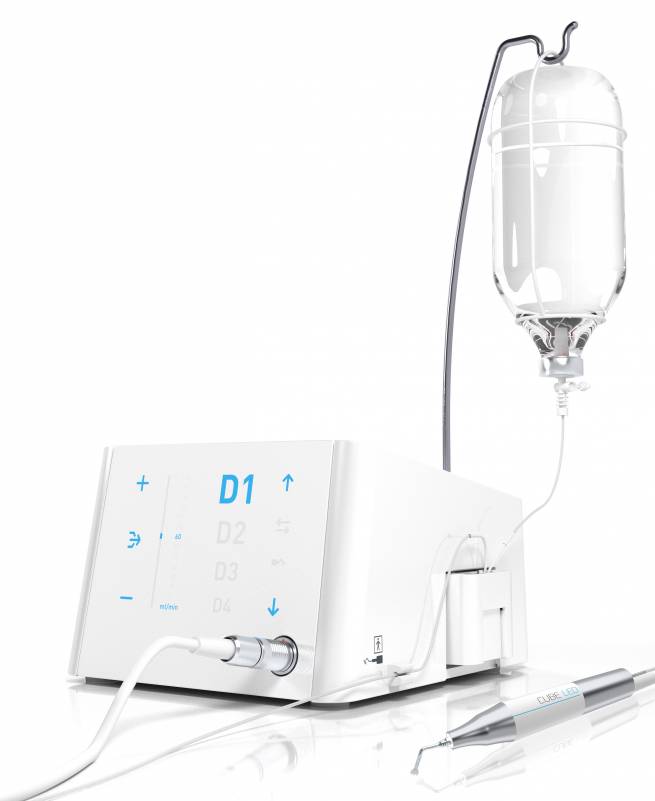
How Long Do Dental Implants Last?
Dental implants are built to last a lifetime. Typically patients who take good care of their oral health do not need to replace their dental implants for 20-25 years.
Are Dental Implants Safe?
Yes, dental implants are a safe and effective method to replace lost, broken or missing teeth in adults.
Dentists from all over the world recommend dental implants treatment to adults who have lost permanent teeth.
Is Dental Implants Treatment Painful?
Dental implants procedure is done after administering local anaesthesia on the patient.
The oral and maxillofacial surgeon is careful to keep the patient out of pain or any form of discomfort.
The procedure is regarded as painless by most patients who have undergone it.
What Are The Risks Associated With Dental Implants?
Like any other medical procedure, dental implants have certain risks involved.
Following are the risks associated with dental implants:
- Susceptible to infection at the surgery location
- Nerve damage
- Aggravation of sinus problems
These are rare risks and Dr Vikram Pandit ensures that none of these become a reality for patients of Pandit Clinic, Pune.
What Are The Other Options To Replace Missing Teeth?
The other tooth replacement options are partial dentures and dental bridges
Dentures are removable dental appliances that combat the problems of missing teeth. But dentures are known to be uncomfortable, tedious to maintain and feel unnatural.
A dental bridge consists of two crowns and one dental pontic (dummy tooth that replaces the missing tooth).
The decision of whether to have a dental bridge or a dental implant depends on your unique situation. The primary consideration as to whether an implant or a bridge is the best option is the condition of the teeth adjacent to the gap. If the adjacent teeth are in good condition, then an implant is probably the way to go. However, if the adjacent teeth are in poor condition for example heavily filled with poor cosmetics (such as amalgam fillings or chipping), then they would probably need crowning anyway before the procedure. In that case, it is a no-brainer to opt for the dental bridge.
Dental Implants For Tooth Replacement
Book Consultation
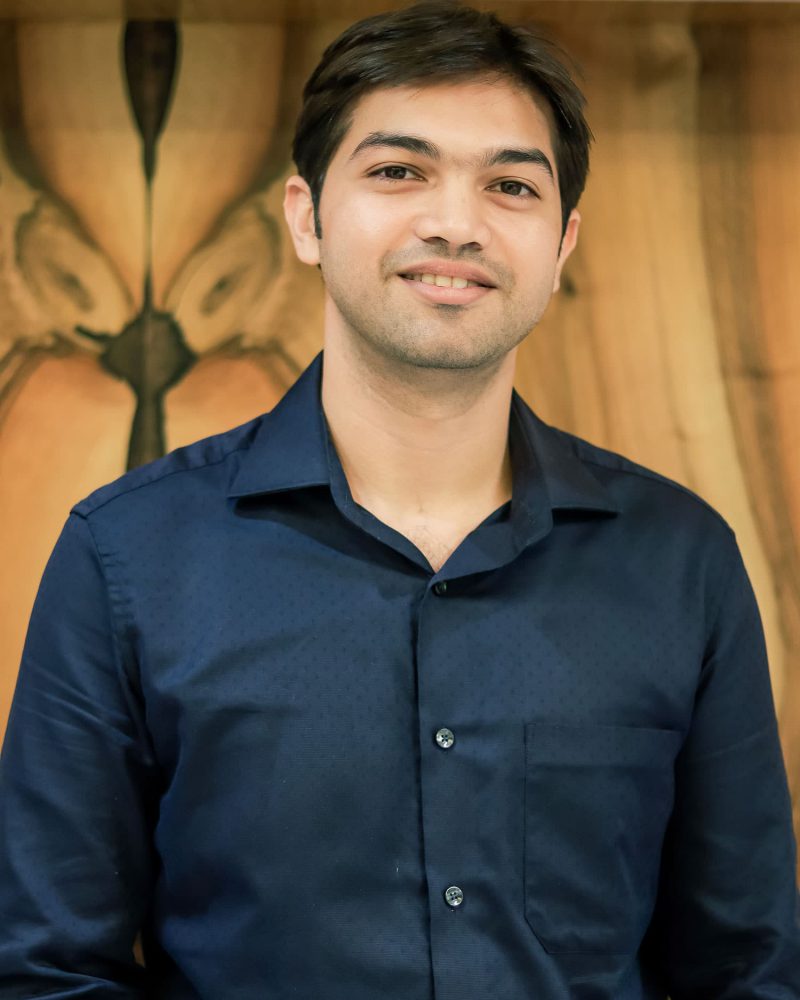
Consult Dr Vikram Pandit
Oral & Maxillofacial Surgeon
Book a consultation with Dr Vikram Pandit. At the consultation, Dr Vikram Pandit will:
- Dr. Vikram Pandit will first perform a thorough examination of your teeth, gums and jaw.
- Explain the problem to you.
- An X-Ray of your teeth will be taken if needed.
We recommend you openly discuss your concerns with Dr. Vikram.
During the consultation be prepared to discuss:
- Your medical conditions, drug allergies, and previous dental treatments.
- Current medications, vitamins, herbal supplements, if any.
- Likely outcomes, and any risks or potential complications.
Book appointment
Meet the Doctor
BDS, MDS Oral & Maxillofacial Surgeon
Dr. Vikram is a visiting consultant and consultant oral and maxillofacial surgeon at the top hospitals in Pune like Poona Hospital and Research Centre, Ratna Memorial Hospital, Pandit Clinic and KEM Hospital. Dr. Vikram has done clinical fellowship in craniofacial surgery with focus on surgery for cleft lip and cleft palate deformities, orthognathic surgery and surgery for sleep related disordered breathing (SRDB). He has trained for advanced management for Facial Trauma, from Taiwan. He has also attended various seminars and done workshops related to Oral and Maxillofacial Surgery. Dr. Vikram is also a co- author of a chapter for a textbook. He has been invited as a speaker for number of conferences in India as well as Internationally.

Call us +91 88059 80048 Home Oral and Maxillofacial Surgery Temporomandibular joints (TMJ) Relieves Jaw Pain And Restores Free Jaw Movements Call us +91 88059

Call us +91 88059 80048 Home Oral and Maxillofacial Surgery Pre-Prosthetic Surgeries The aim of pre-prosthetic surgery is to prepare the soft and hard tissues

Call us +91 88059 80048 Home Oral and Maxillofacial Surgery Jaw Cyst/Tumour Dr. Vikram Pandit (MDS, Oral and Maxillofacial Surgeon) is an expert at Pandit







